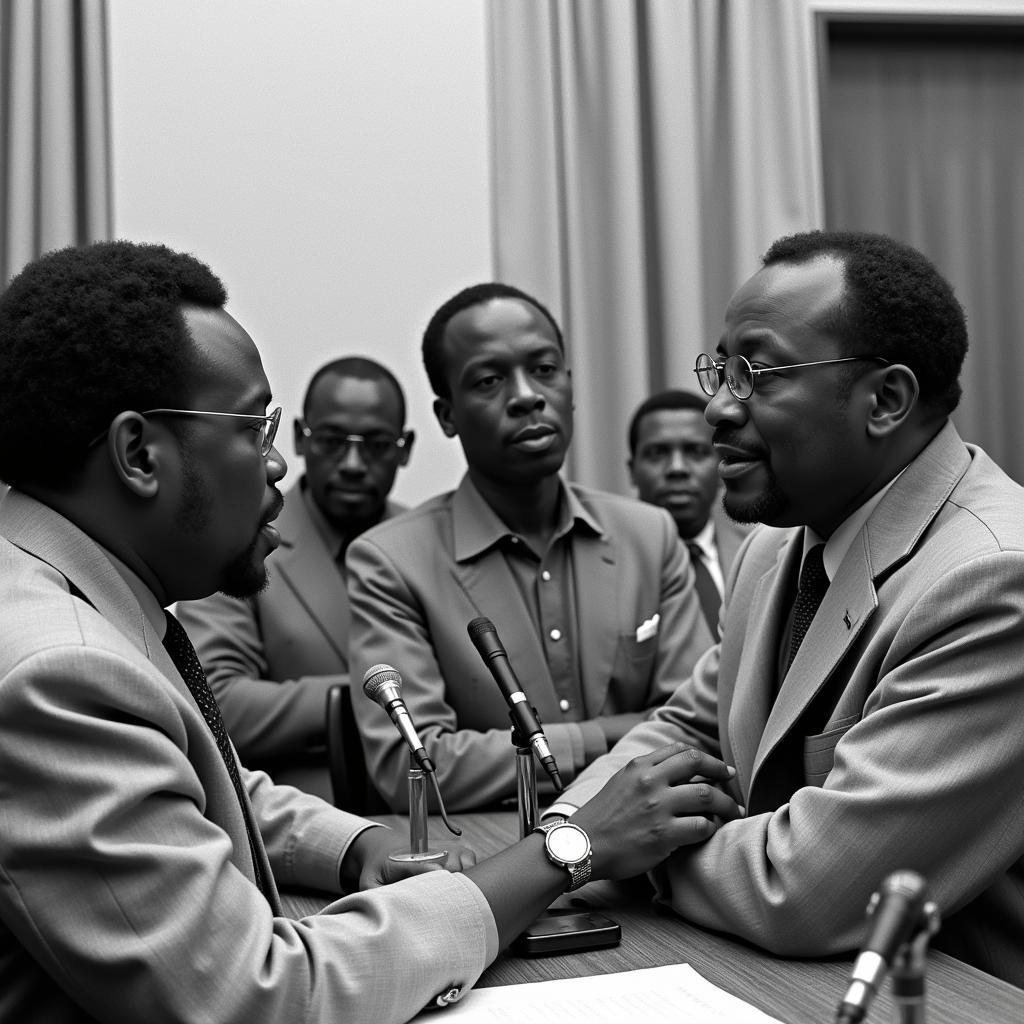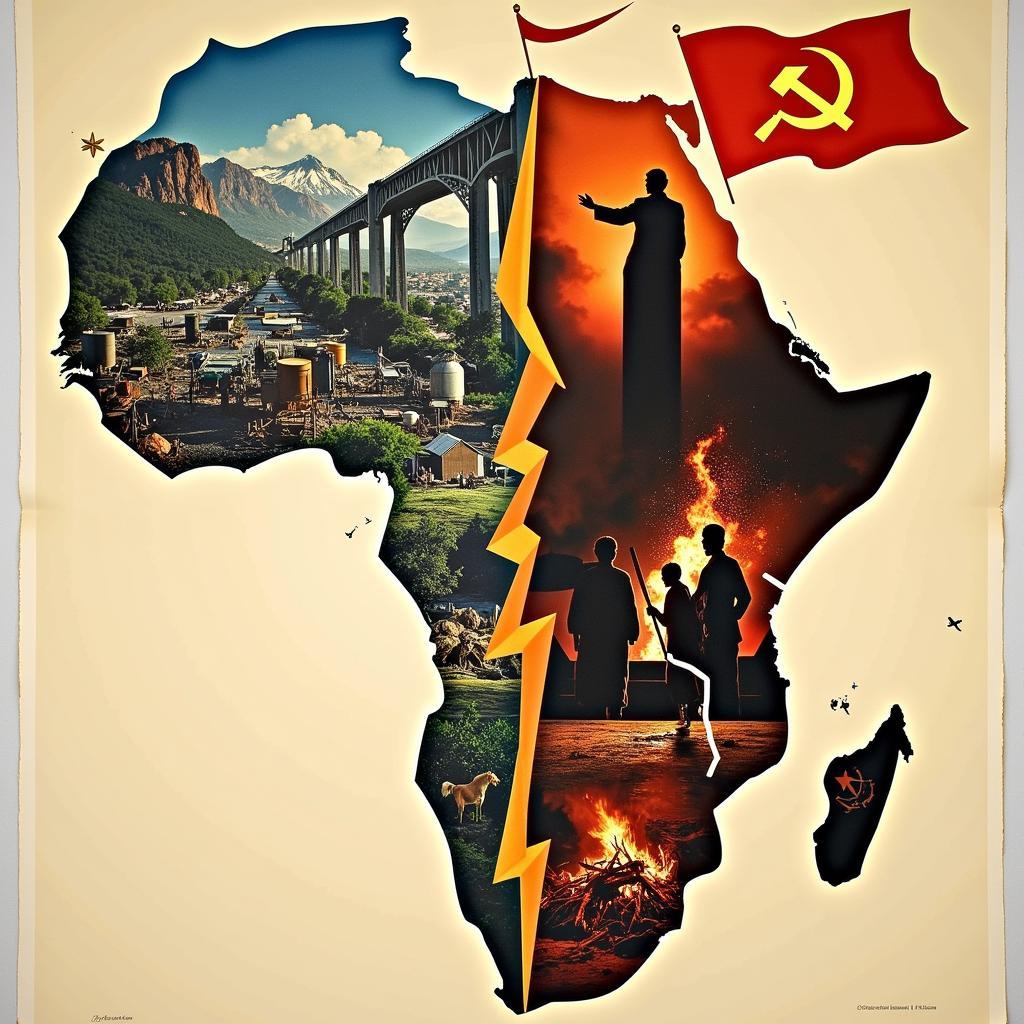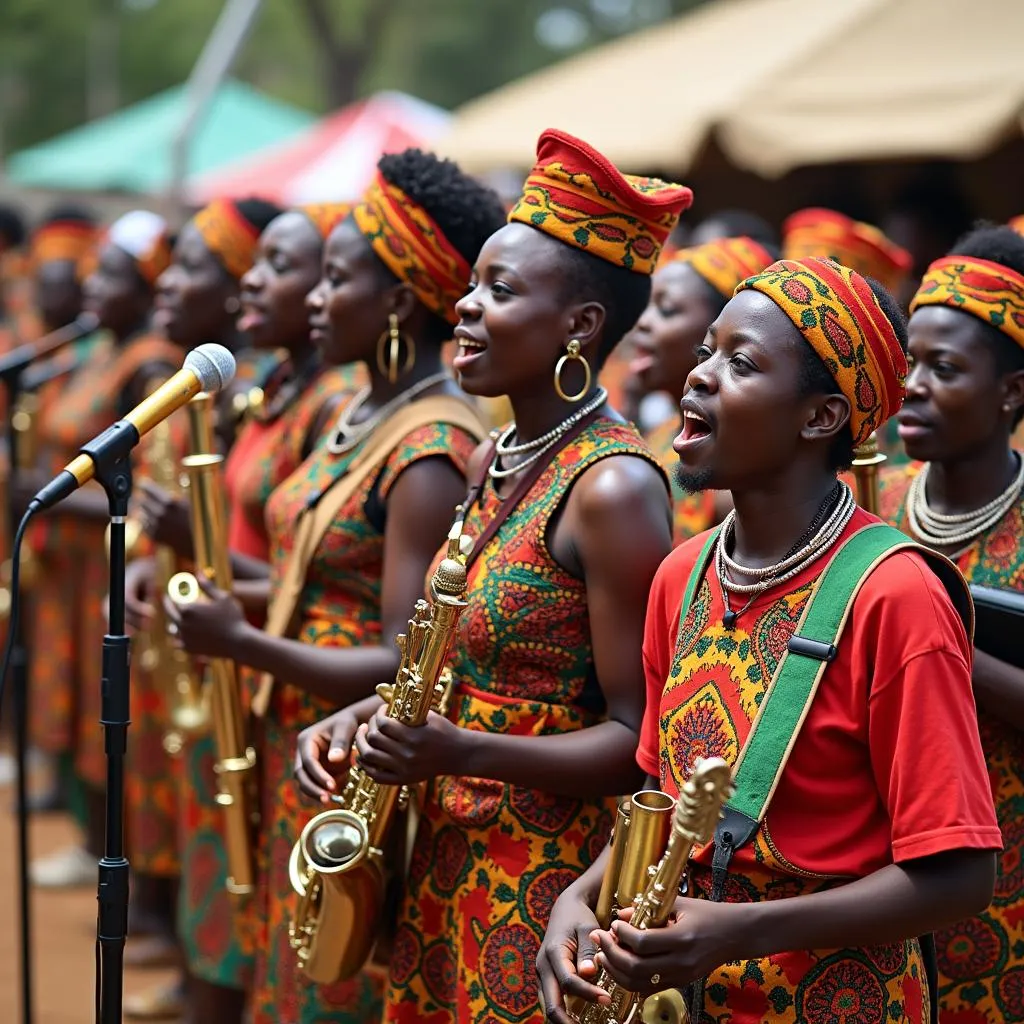African Decolonization and the Cold War: A Complex Relationship
The wave of decolonization that swept across Africa during the Cold War era was a period of immense change, marked by both hope and struggle. This period, typically spanning from the mid-1940s to the late 1970s, saw the birth of numerous independent African nations, eager to forge their own destinies after decades, and in some cases centuries, of colonial rule. However, this transition to independence was far from straightforward. The emerging African nations found themselves caught in the crosshairs of the Cold War, a geopolitical battle between the United States and the Soviet Union, each vying for global dominance. This article delves into the intricate relationship between African Decolonization And The Cold War, exploring how the superpower rivalry impacted the continent’s trajectory.
The Winds of Change: A Continent Awakens
The end of World War II saw a decline in the power and prestige of European colonial powers, who had exhausted their resources in the global conflict. This period also witnessed the rise of nationalist movements in Africa, fueled by the war’s impact and inspired by the principles of self-determination enshrined in the Atlantic Charter. These movements, often led by charismatic figures who had been educated in the West or exposed to socialist ideologies, galvanized popular support for independence. They challenged the legitimacy of colonial rule, arguing that Africans deserved the right to govern themselves and shape their own futures.
 African independence leaders meeting during the 1960s
African independence leaders meeting during the 1960s
However, the path to independence was rarely smooth. While some colonial powers, like Great Britain, adopted a more accommodating stance towards decolonization, others, like France and Portugal, clung tenaciously to their overseas possessions. This led to protracted armed struggles in some instances, such as the Algerian War of Independence (1954-1962) and the protracted conflicts in Angola, Mozambique, and Guinea-Bissau.
Caught in the Crossfire: The Cold War’s Intrusion
The emergence of newly independent African nations coincided with the escalating tensions between the United States and the Soviet Union. Both superpowers saw Africa as a strategically important region and sought to expand their spheres of influence. The US, promoting capitalist democracy, aimed to prevent the spread of communism, which it viewed as a threat to its interests. The Soviet Union, on the other hand, positioned itself as a champion of anti-imperialism, supporting liberation movements and offering economic aid to newly independent nations.
This ideological battleground had a profound impact on the decolonization process. Many African leaders, wary of aligning themselves with either superpower, sought to maintain their non-aligned stance, advocating for a “third way” that prioritized African interests and unity. This led to the formation of organizations like the Non-Aligned Movement in 1961, which aimed to assert the agency and independence of developing nations.
Proxy Wars and Political Instability
Despite efforts to remain non-aligned, the reality of the Cold War often forced African nations to choose sides or become entangled in proxy conflicts. The superpowers, eager to gain an advantage, often provided military and financial aid to different factions within these newly independent states. This interference often exacerbated existing ethnic and political tensions, leading to instability and conflict.
The Congo Crisis (1960-1965), for example, became a tragic illustration of Cold War machinations in Africa. Shortly after gaining independence from Belgium, the mineral-rich Congo descended into chaos, with various factions vying for power. The US and the Soviet Union, backing different sides, fueled the conflict, leading to a devastating civil war that claimed countless lives.
 Cold War propaganda poster depicting the struggle between capitalism and communism in Africa
Cold War propaganda poster depicting the struggle between capitalism and communism in Africa
Lasting Legacies: The Cold War’s Enduring Impact
The end of the Cold War in the early 1990s brought about significant changes in the global order, but its legacy continues to shape the political and economic landscape of many African nations. The superpower rivalry left a trail of unresolved conflicts, authoritarian regimes, and economic dependence, issues that continue to pose challenges to development and stability in the 21st century.
“The Cold War cast a long shadow over Africa, often exacerbating existing tensions and hindering the continent’s ability to chart its own course,” says Dr. Amina Sow, a historian specializing in African decolonization and the Cold War at the University of Dakar. “However, it’s crucial to recognize the agency of African leaders and movements who navigated this complex geopolitical landscape, striving to secure their independence and promote pan-African unity.”
FAQ
1. How did the Cold War affect African countries’ economies?
The Cold War significantly impacted African economies. The influx of aid and arms often led to corruption and mismanagement. Additionally, many countries became reliant on a single superpower for trade and economic support, hindering diversification and sustainable growth.
2. Did the Cold War influence the rise of dictatorships in Africa?
The Cold War contributed to the rise of authoritarian regimes in Africa. Superpowers often supported dictators who aligned with their ideologies, prioritizing strategic interests over democratic principles. This support often came at the expense of human rights and good governance.
3. How did African nations navigate the pressures of the Cold War?
Many African nations adopted a policy of non-alignment, seeking to avoid becoming pawns in the superpower rivalry. They formed organizations like the Non-Aligned Movement to assert their independence and promote cooperation amongst developing nations.
4. Are there any positive legacies of the Cold War in Africa?
While the Cold War had predominantly negative consequences for Africa, some argue that it led to advancements in infrastructure and education, as superpowers competed for influence. However, these benefits were often unequally distributed and came at a high cost.
5. How does the legacy of the Cold War continue to affect Africa today?
The Cold War’s legacy continues to shape Africa in the 21st century, manifested in unresolved conflicts, weak institutions, and economic challenges. Overcoming these issues requires addressing the root causes and promoting sustainable development that prioritizes African needs and aspirations.
Need Help?
If you require further assistance or information, please do not hesitate to contact us:
Phone Number: +255768904061
Email: [email protected]
Address: Mbarali DC Mawindi, Kangaga, Tanzania
Our dedicated customer support team is available 24/7 to assist you.
You may also find the following resources helpful:
We are committed to providing you with comprehensive information and support on all aspects of African Life, culture, and history.


